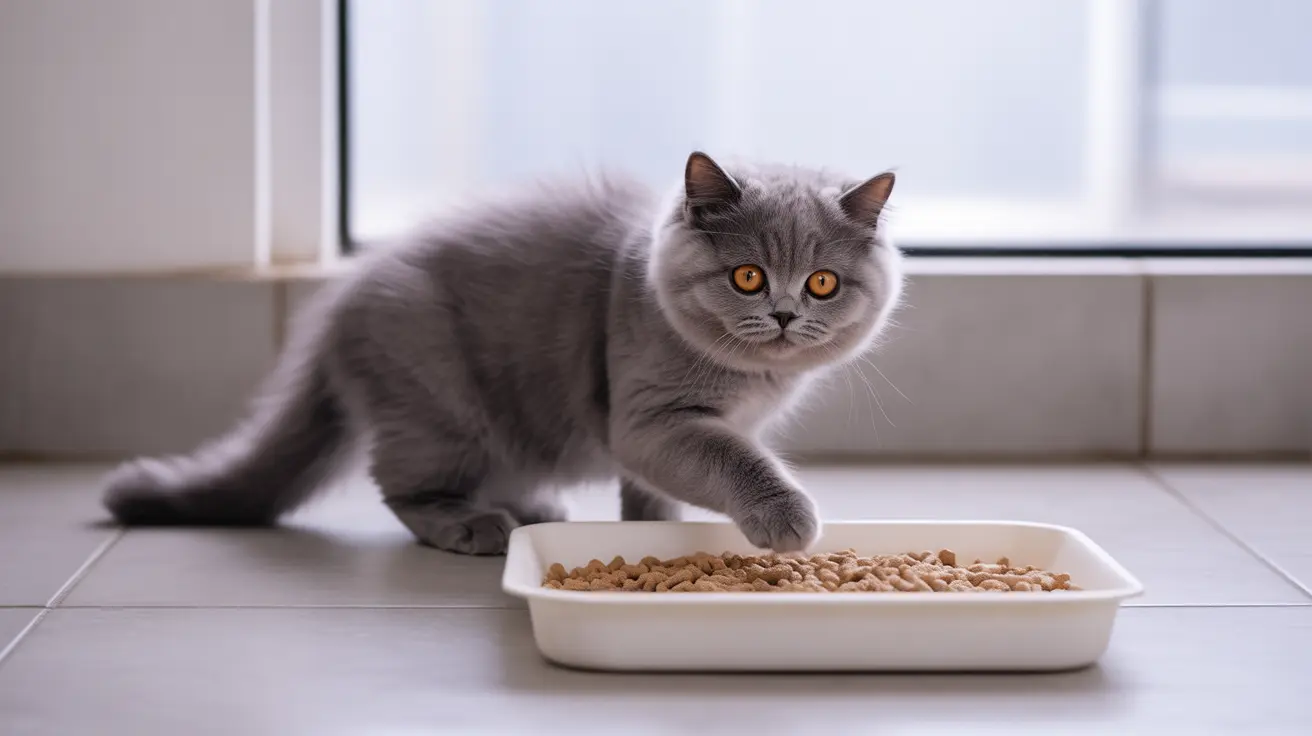Selecting the right cat litter can significantly impact both your cat's health and your home's cleanliness. With numerous options available in the market, understanding what veterinarians recommend can help you make an informed decision that benefits both you and your feline friend.
In this comprehensive guide, we'll explore the various types of cat litter that veterinarians endorse, their benefits and drawbacks, and how to choose the best option for your specific situation.
Understanding Different Types of Vet-Recommended Cat Litter
Clumping Clay Litter
Most veterinarians recommend unscented, low-dust clumping clay litter for adult cats. This type offers excellent odor control and makes waste removal simple through efficient clumping action. The main advantages include:
- Easy scooping and maintenance
- Superior odor control
- Cost-effective
- Widely available
- Cats naturally accept it
Crystal and Silica Gel Litter
Veterinarians often suggest crystal litter for cats with respiratory sensitivities. These benefits include:
- Extremely low dust
- Excellent moisture absorption
- Long-lasting performance
- Lightweight and easy to handle
- Less tracking throughout the house
Natural and Plant-Based Options
For environmentally conscious pet owners, vets recommend several natural alternatives:
- Paper-based litter for sensitive paws
- Pine pellets for natural odor control
- Corn-based products for biodegradability
- Wheat-based options for natural clumping
Special Considerations for Different Cat Life Stages
Kittens
Veterinarians specifically recommend non-clumping litter for kittens under 4 months old to prevent accidental ingestion during grooming. Paper-based or natural pellet litters are often the safest choices.
Senior Cats
For older cats, vets suggest litter that's gentle on sensitive paws and easy to dig in. Fine-grain, unscented varieties typically work best for senior cats with arthritis or mobility issues.
Health and Safety Factors
When recommending cat litter, veterinarians consider several health factors:
- Dust levels and respiratory health
- Potential for allergic reactions
- Tracking and ingestion risks
- Post-surgical requirements
- Multiple cat household needs
Best Practices for Litter Box Maintenance
Veterinarians emphasize that even the best litter requires proper maintenance:
- Daily scooping
- Complete litter replacement every 2-3 weeks
- Regular box washing with mild soap
- Maintaining appropriate litter depth (2-3 inches)
- Using the right size box for your cat
Frequently Asked Questions
What are the vet-recommended types of cat litter for kittens or cats with allergies?
For kittens and cats with allergies, veterinarians typically recommend unscented, non-clumping paper-based litter or natural options like pine pellets. These varieties minimize dust and reduce the risk of respiratory issues.
How do I choose a low-dust, clumping cat litter that is safe and easy to clean?
Look for premium clumping clay litters labeled as "low-dust" or "dust-free." Many veterinarians recommend brands that use sodium bentonite clay for its superior clumping ability and minimal dust production.
What are the best eco-friendly and biodegradable cat litters recommended by veterinarians?
Veterinarians often recommend corn-based, pine, or paper-based litters for eco-conscious pet owners. These options are biodegradable and generally produce less dust than traditional clay litters.
How does silica gel crystal litter compare to clay litter for odor control and cat health?
Crystal litter typically offers superior moisture absorption and odor control compared to clay, with less dust production. However, it's usually more expensive and some cats may need time to adjust to its texture.
Can switching to plant-based or recycled paper litter improve my cat's respiratory health?
Yes, switching to these alternatives can help cats with respiratory sensitivities. These options typically produce less dust and are free from artificial fragrances that might irritate your cat's airways.
Conclusion
When choosing a cat litter, consider your veterinarian's recommendations while accounting for your cat's specific needs and preferences. The best litter is one that your cat will consistently use, is safe for their health, and fits your maintenance routine and budget.
Remember that any litter changes should be made gradually to ensure your cat's continued litter box use. If you notice any issues with your current litter, consult your veterinarian for personalized recommendations based on your cat's specific situation.






